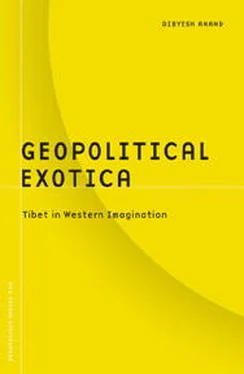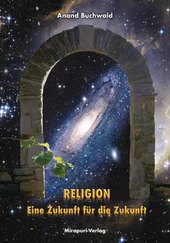The mode of trivializing and infantilizing natives is evident as Younghusband writes that the impression left on him was that the Tibetans, "though excessively childish, were very pleasant, cheery people, and individually, probably quite well disposed towards us" (124). He records how he tried again and again to reason with the obstinate Tibetans who refused to recognize British supremacy: "When I saw these people so steeped in ignorance of what opposing the might of the British Empire really meant, I felt it my duty to reason with them… to save them from the results of their ignorance" (163). In retrospect, one could argue that the Tibetan delegates, who came to negotiate before the mission finally entered Lhasa, had a better understanding of imperialism. The delegates stressed that it was Tibetan custom to keep all strangers out, otherwise, following the British, other nations too would want to go to Lhasa and establish their agents (as they did in China). In contrast, speaking from the lofty heights of an "internationalism" that was actually based on imperial arrogance, Younghusband "reminded them that they lived apart from the rest of the world, and did not understand the customs of international discourse. To us the fact of their having kept the representative of a great Power waiting for a year to negotiate was a deep insult, which most Powers would resent by making war without giving any further chance for negotiation. But the British Government disliked making war if they could possibly help it" (229).
Distinct from the latter-day idealizations of Tibetan Buddhism for its pacifist character, Younghusband agrees that "Lamaism" had a pacifying effect, but he has a different evaluation of this peace: "But the peace that has been nurtured has been the quiescence of sloth and decadence… Peace, instead of harmony, has been their ideal-peace for the emasculated individual instead of harmony for the united and full-blooded whole" (314-15). The pacifism of Tibetans is contrasted unfavorably with the masculine, energetic, and outward-looking character of the British imperial project.
Carrying on and reinforcing the tradition of Western travelers to Tibet, Younghusband experienced an epiphany there. For a moment, a mystic Younghusband subsumed the imperialist Younghusband. At a camp outside Lhasa, he went off alone to the mountains and, in his own words, "gave myself up to all the emotions of this eventful time." As he writes, from the city came the Lama's words of peace and not hatred and
I was insensibly suffused with an almost intoxicating sense of elation and good-will. This exhilaration of the moment grew and grew till it thrilled through me with overpowering intensity. Never again could I think of evil, or ever again be enemy with any man. All nature and all humanity were bathed in a rosy glowing radiancy; and life for the future seemed nought but buoyancy and light…
and that single hour on leaving Lhasa was worth all the rest of a lifetime. (326-27)
Tibet seems to have had a transformative effect on the hardened imperialist. [33]
Thus India and Tibet reflects many characteristics that were typical of imperial literature on Tibet during the time. It shows Tibet as a land of contrasts (between the lamas and the common people) and a land of religion (if a degraded one). It indulges in essentialism and stereotyping and deploys various representational strategies including gaze, debasement, moralization, infantilization, and self-affirmation. In contrast to the image of Tibet as a utopian archive, Younghusband's account is mainly about self-affirmation, a defense of the British imperial project as ennobling for the British and as civilizing for others. An incomplete passage from the discarded notes used for the book reflects Younghusband's confidence in his invasion:"To wantonly invade Tibet in sheer lust of conquest and merely for the sake of painting the map red would of course have been wrong. But" (IOR: MSS EUR/F197/358 n.d.).
He wrote further, "I favour forward policy, which simply recognises that great civilized Powers cannot by any possibility permanently ignore and disregard semi-civilized peoples on their borders, but must inevitably establish, and in time regularize, intercourse with them, and should therefore seize opportunities of humanizing that intercourse "(Younghusband 1910, 428; emphases added).
Youngblood justified the mission, asserting that the Tibetans had "asked me to take them under British protection-having come to the conclusion from what they had seen of us, that we were preferable to the Chinese" (IOR: MSS EUR/F197/108 n.d., 3). While Younghusband was criticized by his own government as well as a large section of the press (see Mehra 2005), he had his defenders. At a lecture delivered in London by a member of the Tibet mission, Douglas Freshfield, the chairman of session assured the audience that the natives whose sensitivities had been hurt by the invasion "would eventually come to see the English were right" and quoted a poem:
The East bow'd low before the blast,
In patient, deep disdain;
She let the legions thunder past,
And plunged in thought again (Freshfield 1905, 273)
TIBET: A LAND OF RELIGION
Tibet's association with religion can be traced back to the early modern age when the first Western travelers were mostly Christian missionaries. [34]The Western assessment of religion as the main, if not the sole, defining feature of Tibetan life and culture has differed over time. Western missionaries as well as many travelers, especially in the beginning of the twentieth century, considered Tibetan culture barbaric and degenerate. However, as the century progressed and the merits of Christianity as well as secularism came under scrutiny in the West, Tibetan Buddhism [35]came to be idealized.
For most Western commentators until the beginning of the twentieth century, the Tibetan "preoccupation" with religion was irrational, superstitious, and downright degenerate, at least when compared to classical Buddhism. This unfavorable comparison between Tibetan and classical Buddhism is not surprising: the latter is a hypostatized phenomenon, created by Europe and controlled by it. It was against this classical Buddhism that all Buddhisms of the modern Orient were to be judged and found lacking (Lopez 1998, 7; see also Lopez 1995). Lamaism was the most degenerate and inau-thentic of all. This sentiment is clearly reflected in Waddell's work, which is characterized by modes of stereotyping and essentialism and representational strategies of gaze, classification, debasement, negation, moralization, and self-affirmation. In contrast, the Tibetan Book of the Dead is marked by modes of stereotyping, essentialism, and exoticism along with the strategies of differentiation, idealization, affirmation, gerontification, and self-criticism.
Waddell and the Study of Degenerate Lamaism
Waddell, the foremost expert on Tibetan Buddhism at the turn of the twentieth century, bolstered widespread negative images of Tibet ostensibly based on scientific and ethnographic foundations. He had the right credentials to be an expert: he had learned the Tibetan language, he sought to study the religion systematically [36]and scientifically, and most important, he was a white European male.
Waddell's accounts of his journey into Tibetan religion (The Buddhism of Tibet or Lamaism, 1895/1972) as well as into the Tibetan landscape (Lhasa and Its Mysteries, 1905) are filled with references to a degenerate form of Buddhism, an exploitative priesthood, and a superstitious peasantry. He writes, "The bulk of the
Lamaist cults comprise much deep-rooted devil -worship and sorcery… for Lamaism is only thinly and imperfectly varnished over with Buddhist symbolism, beneath which the sinister growth of poly-demonist superstition darkly appears" (1972, xi). In Tibet, the impure form of Buddhism became "a disastrous parasitic disease which fastened on to the vitals of the land… a cloak to the worst form of oppressive devil-worship" (1905, 25). At the same time, "lamaism" is not all bad as "it preserves for us much of the old-world lore and petrified beliefs of our Aryan ancestors" (1972, 4). In a typical blind imperialist un-self-reflexivity, Waddell finds the Tibetan Regent "hopelessly biased" about the religion of the British (1905, 408), while viewing his own biases about the religion of the Tibetans as objective.
Читать дальше












